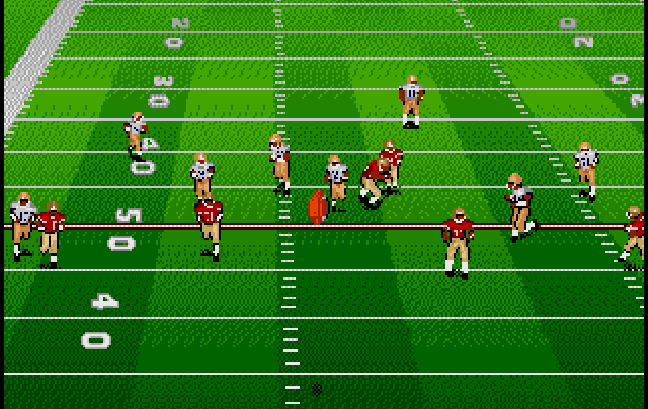
Bill Walsh College Football
5/5 (1 Reviews)Introduction to Bill Walsh College Football
Bill Walsh College Football brings college football to life with classic gameplay options and features that fans of the sport will love. Originally released in the early 1990s, this title remains a go-to choice for retro sports enthusiasts looking for a realistic college football experience.

Game Modes and Features of Bill Walsh College Football
Bill Walsh College Football offers three main game modes: Exhibition, Playoffs, and All-Time Playoffs. Exhibition mode lets players enjoy casual matches, while Playoffs and All-Time Playoffs allow for more competitive tournament-style gameplay. These modes give players flexibility in how they want to approach the game, whether it’s a friendly matchup or the intensity of a playoff series.
The game includes a comprehensive playbook, boasting 56 offensive plays and 52 defensive plays. Offensive strategies feature iconic options like the triple option, the student body, and the wishbone, giving players control over a range of tactics. On defense, the playbook is just as varied, allowing for deep, strategic gameplay.
Realistic Options and Customization
Bill Walsh College Football goes beyond basic gameplay by providing players with realistic features and customization. You can choose from automatic or manual pass-catch modes, enabling more control over catches. Players also have the option to call audibles, initiate a hurry-up offense, and use onside kicks strategically, all adding to the authenticity.
Replayability is enhanced with four weather conditions: fair, windy, rain, and snow. Additionally, players can adjust the quarter lengths to 5, 10, or 15 minutes, tailoring the game length to fit their preferred play style. Reverse angle replay captures key moments, giving players the chance to relive big plays.
Teams and Rosters
The game features 48 college teams, split between 24 all-time greatest teams (dating back to 1978) and 24 of the previous year’s top-ranked teams. While the game does not use official logos or actual player names, each team is represented by its city, and players are identified by numbers. This approach allowed Bill Walsh College Football to capture the spirit of college football while respecting the licensing limitations of the time.
























